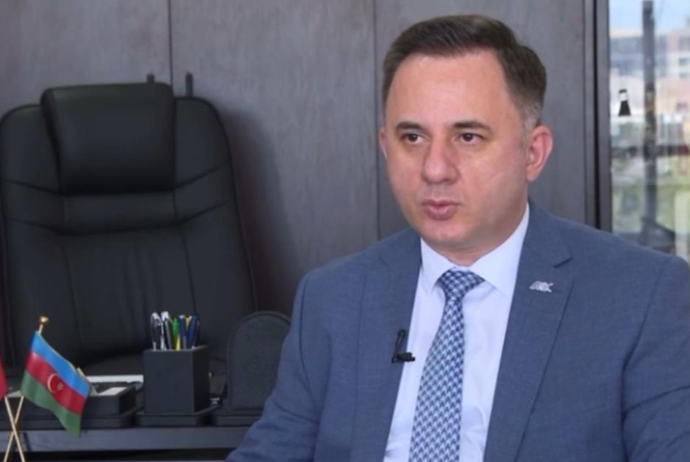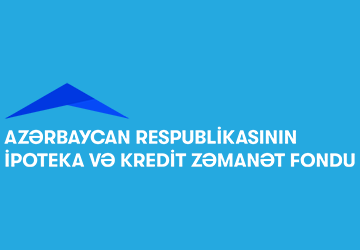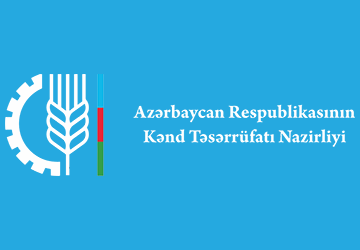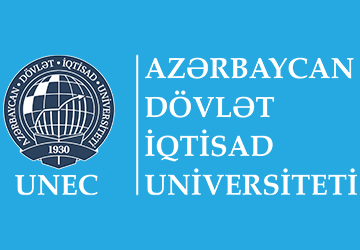- info@aqc.az
- +994124880556
- AZ
- RU

“ASA is Preparing Seriously for a New Era and Will Introduce Significant Innovations to the Sector”

Vugar Oruc, Chairman of the Azerbaijan Society of Appraisers (ASA) and President of the Council of Appraiser Associations of Turkic States (CAATS), shared his thoughts with ASA’s Public Relations and Communication Department regarding the organization’s upcoming tasks and strategic priorities:
– A Scientific and Methodological Council has been established within ASA. Reviewing the list, we observe the presence of distinguished economists and scholars. What will be the main focus areas of this council?
– The main goal behind establishing the Scientific and Methodological Council is to strengthen the theoretical and practical foundations of valuation activities and to ensure the adaptation of international standards to national practices. The distinguished scholars on the council will work on developing methodological documents and shaping training and educational programs. The council aims to implement new valuation methods, promote scientific research in the field, and improve the quality of professional training.
Our key objectives include organizing scientific-methodological activities, determining the main directions of research, ensuring the development of scientific approaches for methodological support in teaching processes, providing recommendations for discussing and publishing educational materials, and promoting innovative initiatives. The council will also publish ASA’s official scientific journal. Discussions with relevant institutions are nearing completion, and we are confident that this journal will feature valuable scientific articles covering various aspects of the valuation sector and the broader ecosystem.
The council is headed by ASA Deputy Chairman, Associate Professor Ibrahim Guliyev, PhD in Economics from Azerbaijan State University of Economics. Other members include Dr. Rasmiya Sabir (Head of Department, Institute of Economics, Ministry of Science and Education), Assoc. Prof. Vusala Naghiyeva (Baku Eurasian University), Assoc. Prof. Nezaket Musayeva (ASUE), Assoc. Prof. Natavan Namazova (Azerbaijan Technical University), Assoc. Prof. Ulker Sadiqova, Assoc. Prof. Ilgar Mammadov (Azerbaijan University of Architecture and Construction), Assoc. Prof. Aliheydar Panaliyev (ATU), Assoc. Prof. Bulud Sadiqov (ASUE), international standards auditor Asif Ibrahimov (BSI & LRQA - ISO 9001/45001), and Assoc. Prof. Parvin Verdiyeva (Baku Eurasian University).
– In Azerbaijan, scientific journals are categorized into A, B, and C classes. What steps should be taken to increase interest in such journals? What will distinguish the planned valuation journal as an innovation in this field?
– To increase interest in scientific journals, they must be indexed in international scientific databases, and the submission and peer review process should be transparent, objective, and efficient. Our planned valuation journal will be designed to meet international academic standards with the goal of being included in the A-class category.
Our primary distinction lies in combining theoretical, methodological, and practical market experience in one publication. We will also apply a multidisciplinary approach with contributions from both regional and international authors. Unfortunately, the weak development of Azerbaijan's journal ecosystem forces many scholars to seek publication abroad, often falling into the trap of non-professional or predatory journals that charge high fees without proper review processes. This undermines the value of legitimate scientific work.
The requirement for scholars to publish in foreign journals puts researchers in a difficult position. In many fields, including valuation, there is a lack of dedicated local journals, despite the sector's growing role in the economy. There is a clear need for scientific research and professional publications to support high-quality valuation reports.
As President of both ASA and CAATS, I can say we have strong ties with valuation associations across Azerbaijan, Türkiye, Kazakhstan, Uzbekistan, Kyrgyzstan, Turkmenistan, and the Turkish Republic of Northern Cyprus. Though not official members, Russia, Belarus, and Georgia also actively engage with our council. The planned journal will include contributions from both Azerbaijani and international experts, aiming to bring valuation practices to the international stage and contribute to the advancement of global standards.
– What is the nature of the relationship between ASA and the Azerbaijan Chamber of Appraisers (ACP)? What are your cooperation plans, and do you foresee any amendments to the new law?
– Since we operate in the same sector, our relationship with ACP must be based on mutual respect and cooperation. ASA is open to collaborating with the Chamber on improving professional standards, certification of appraisers, and upholding professional ethics. We also plan to co-organize training, seminars, conferences, and international events. Our shared objective is to make the professional landscape more competitive and internationally viable.
Although the Chamber has administrative authority over the sector, ASA holds deep expertise and experience. Many of Azerbaijan’s professional appraisers have come through ASA. We will continue to contribute meaningfully to the sector’s development.
The first “Law on Valuation Activity” was adopted in 1998 and updated in 2023, with ASA playing an active role in this process. We participated in preliminary discussions at the Economic Policy, Industry, and Entrepreneurship Committee of the Parliament and were part of extended meetings led by the Task Force formed by Prime Minister Ali Asadov, including representatives from the Ministries of Justice, Economy, Finance, and the State Examination Center.
Our experts helped prepare questions for the certification exams administered by the State Examination Center, which were crucial for selecting the future appraisers of the Chamber.
Although the updated law introduced several progressive elements, some gaps remain. It defines valuation activities across nine separate directions. We proposed that these be optimized. For example, an appraiser certified in business valuation cannot legally value other components like movable or immovable assets that form part of the same business. This segmentation is impractical.
In many countries, including neighboring ones, classification is based more on expertise levels rather than rigid valuation types. We advocate for reducing the nine directions to three or four, aligning with international best practices.
– ASA achieved major milestones from May 2002 to May 2025 and became one of the leading professional associations in the country. Re-elected as ASA Chairman, what new developments can we expect over the next three years?
– Our top priority for the next three years is the creation of a digital valuation platform to improve efficiency and transparency. The second is international cooperation, particularly through joint projects with professional associations from Turkic and other countries. The third is the expansion of professional development programs, including the introduction of a mentorship system for young appraisers.
We will also continue to actively contribute to improving the legal framework of the valuation sector. This includes working with government agencies, international organizations, financial institutions, civil society, and the Chamber of Appraisers. One of our main objectives is to prevent potential monopolistic behaviors and ensure compliance with the Competition Code.
We have proposed the creation of a regulatory structure under the Ministry of Finance to oversee valuation, financial reporting, and audit sectors. This is a critical step.
As you mentioned, over the past three years we have made substantial contributions to the sector. With the experience we’ve gained, our ambitions for the future are even greater. ASA is preparing very seriously for this new era and will bring transformative innovations to the valuation sector.
– What developments are expected within the Council of Appraiser Associations of Turkic States (CAATS)?
– Since its launch in 2023, CAATS has become the leading valuation platform in the region. Member countries include Azerbaijan, Türkiye, Kazakhstan, Uzbekistan, Kyrgyzstan, Turkmenistan, and the Turkish Republic of Northern Cyprus, representing over 700 companies and thousands of professionals.
So far, high-level forums have been held in Azerbaijan, Türkiye, Kazakhstan, and Uzbekistan. While not official members, Russia, Belarus, and Georgia actively participate in CAATS initiatives.
The next forum will be held in Kyrgyzstan in the coming months, where we expect major decisions to be made. We are proud to have achieved strong unity among Turkic state appraisers and successfully completed our organizational phase.
Our next goals include the creation of a unified information database and the enhancement of scientific cooperation among member countries. Active discussions are ongoing, and we expect to finalize decisions at the upcoming forum. Key targets include experience and knowledge exchange, joint research and educational initiatives, and the development of mutual recognition programs.

CHOOSE THE COLOR
- RTL Version
- LTR Version



